Are you passionate about making a difference in the fight against hunger? Our organization is dedicated to promoting food security initiatives that nourish communities and empower individuals. We believe that with your support, we can create a sustainable impact and transform lives. Join us on this journey and read more about how you can contribute to our mission!
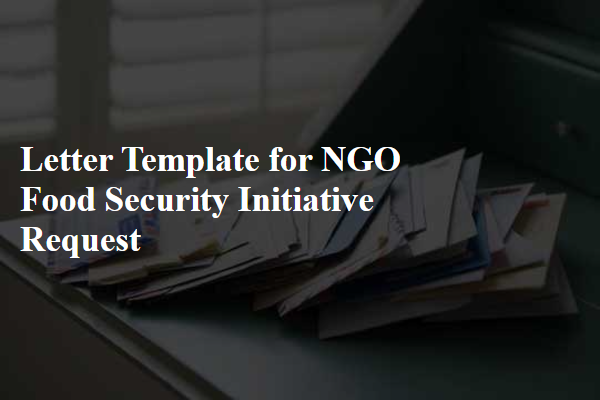
Clear and Concise Introduction
The NGO food security initiative aims to address the pressing challenges of hunger and malnutrition affecting communities in various regions globally. Recent reports indicate that over 800 million individuals face food insecurity, particularly in developing nations like Sudan, Yemen, and Ethiopia. The initiative seeks to implement sustainable agricultural practices, improve access to nutritious food, and enhance food distribution systems. Collaborations with local farmers, governments, and international organizations will be vital in creating effective solutions tailored to specific community needs. Additionally, education and training programs will empower households to maximize agricultural outputs and ensure long-term food stability.
Specific Objectives and Goals
The Food Security Initiative aims to enhance access to nutritious food for vulnerable populations, such as low-income families and individuals experiencing homelessness. Increasing food access through community gardens and local farmer partnerships can provide fresh produce and promote dietary diversity. Educational programs on sustainable agricultural practices can empower residents to grow their own food, reducing dependency on food banks and enhancing self-sufficiency. Collaborations with local schools can ensure children receive balanced meals and essential nutrition education, fostering long-term healthy eating habits. Key performance indicators include the number of community gardens established, participants trained in sustainable agriculture, and increases in fresh food access metrics. The overarching goal is to decrease food insecurity by 25% in the targeted region, supporting a healthier, more resilient community.
Strong Impact Statement
Food insecurity affects approximately 10.5% of households in the United States, leading to detrimental health, economic, and social consequences. Initiatives to address food scarcity, like community-based programs in urban areas, provide essential support to vulnerable populations, particularly children and the elderly. Organizations, such as Feeding America, play a critical role in alleviating hunger through food distribution networks that reach millions of individuals annually. By increasing access to nutritious food and resources, these initiatives not only improve individual health outcomes but also foster community resilience. Consequently, investing in food security initiatives can create long-term benefits, reducing reliance on emergency food assistance and promoting sustainable agricultural practices.
Call to Action and Engagement
The NGO's food security initiative aims to address the critical challenge of hunger affecting over 700 million people globally, focusing on regions like Sub-Saharan Africa and South Asia. This program emphasizes sustainable agricultural practices and nutritional education, engaging local communities and partnering with organizations such as the World Food Programme. By leveraging innovative methods, such as urban gardening and food preservation techniques, the initiative aims to enhance food accessibility and reduce waste. The call to action encourages individuals to participate in community workshops and support advocacy efforts, highlighting the urgency of increasing food availability. Engagement from local businesses and volunteers is essential to foster a resilient food system, ultimately ensuring that vulnerable populations are empowered to access nutritious food consistently.
Contact Information and Follow-Up Plan
In the pursuit of enhancing food security through NGOs (Non-Governmental Organizations) initiatives, establishing a solid contact information network is essential. Key stakeholders often include community leaders, local farmers, food banks, and governmental agencies, all playing crucial roles in food distribution channels. Establishing relationships involves phone numbers, emails, and physical addresses to facilitate communication. Furthermore, implementing a detailed follow-up plan, with specific timelines (e.g., 30 days post-initiative launch) for engaging with partners ensures project accountability and progress assessment. Regular updates through quarterly reports or monthly meetings can reinforce commitment, enabling organizations to share impactful stories and data that highlight the initiative's effectiveness in improving food accessibility and community resilience.
Letter Template For Ngo Food Security Initiative Request Samples
Letter template of a request for partnership in food security initiative
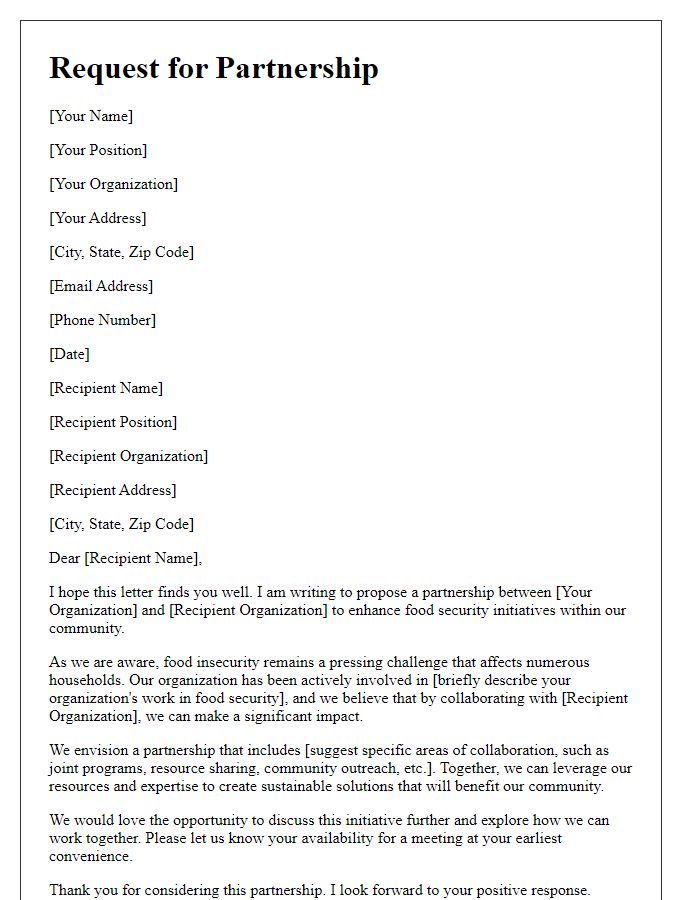
Letter template of an appeal for funding support for food security program
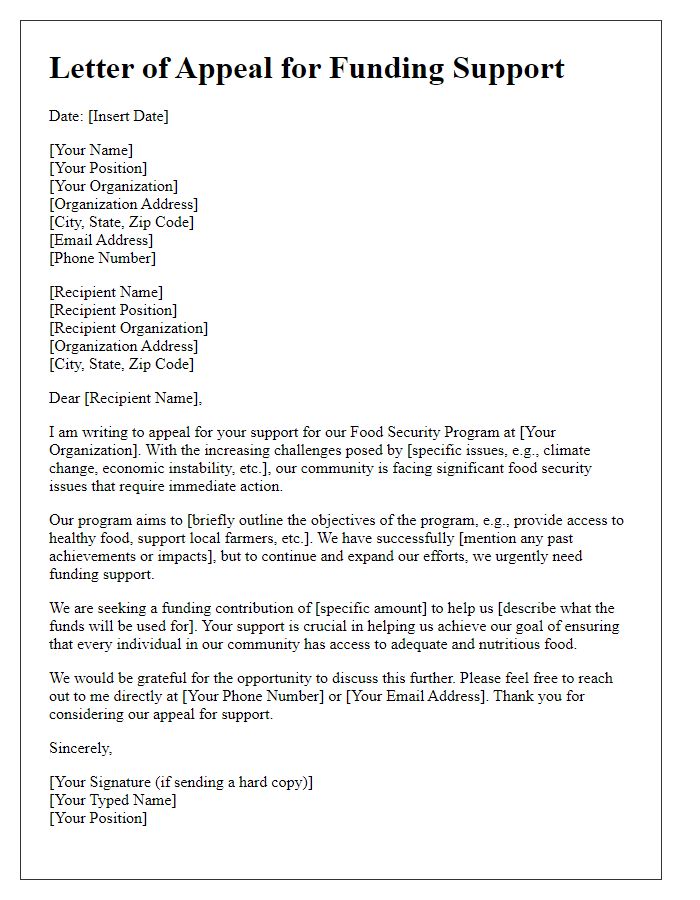
Letter template of inquiry for collaboration on sustainable food initiatives
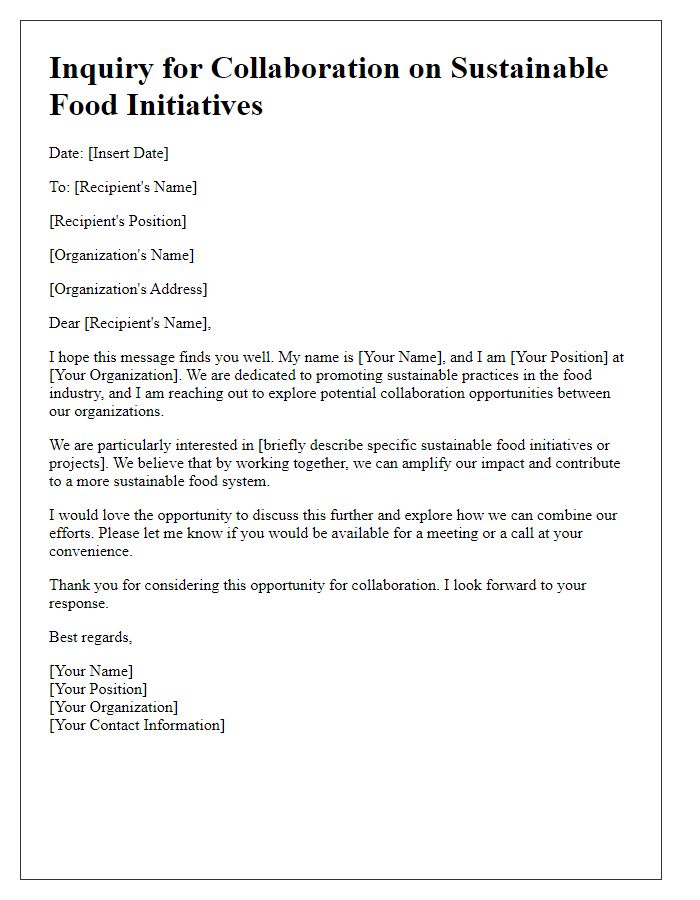
Letter template of a request for donations to enhance food accessibility
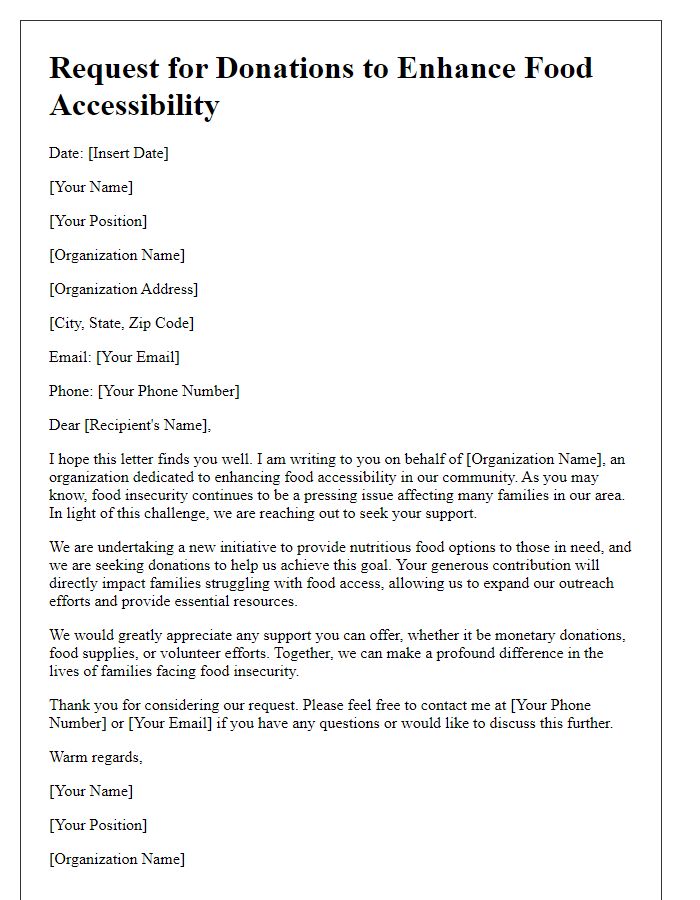
Letter template of an invitation to join food security awareness campaign
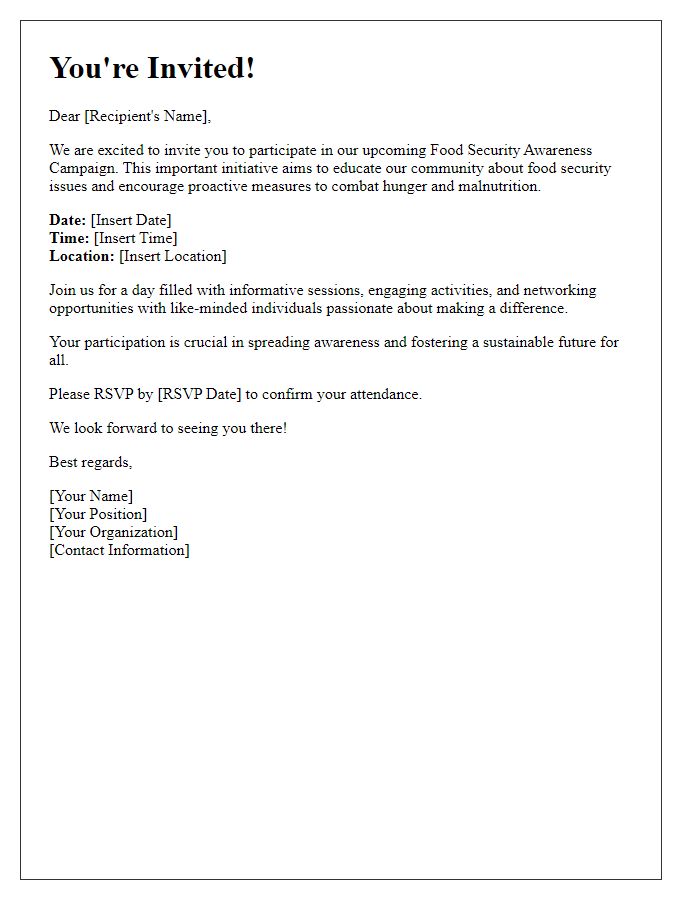
Letter template of a follow-up on previous food security funding request
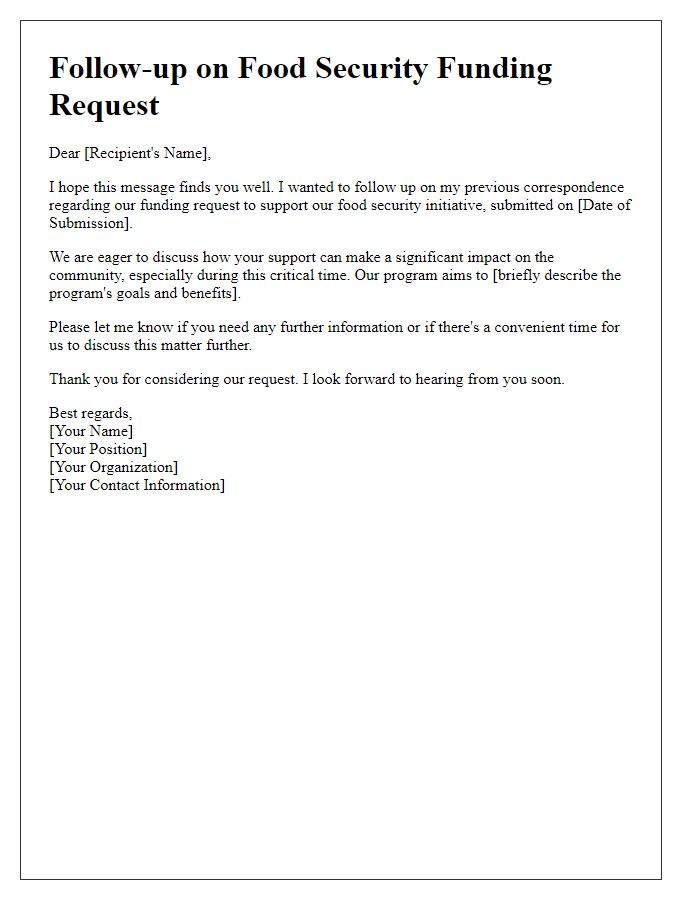

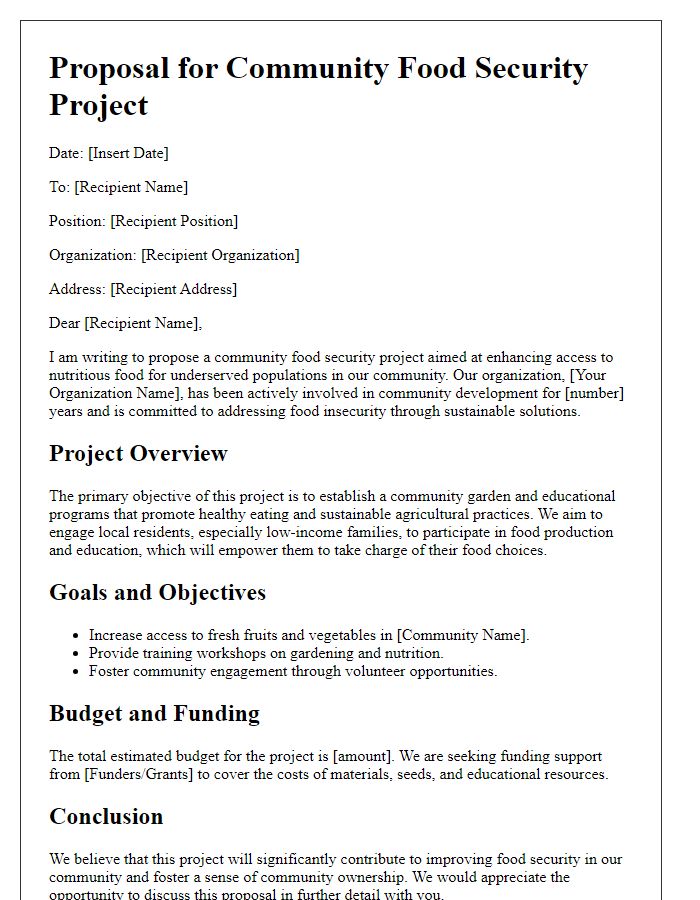
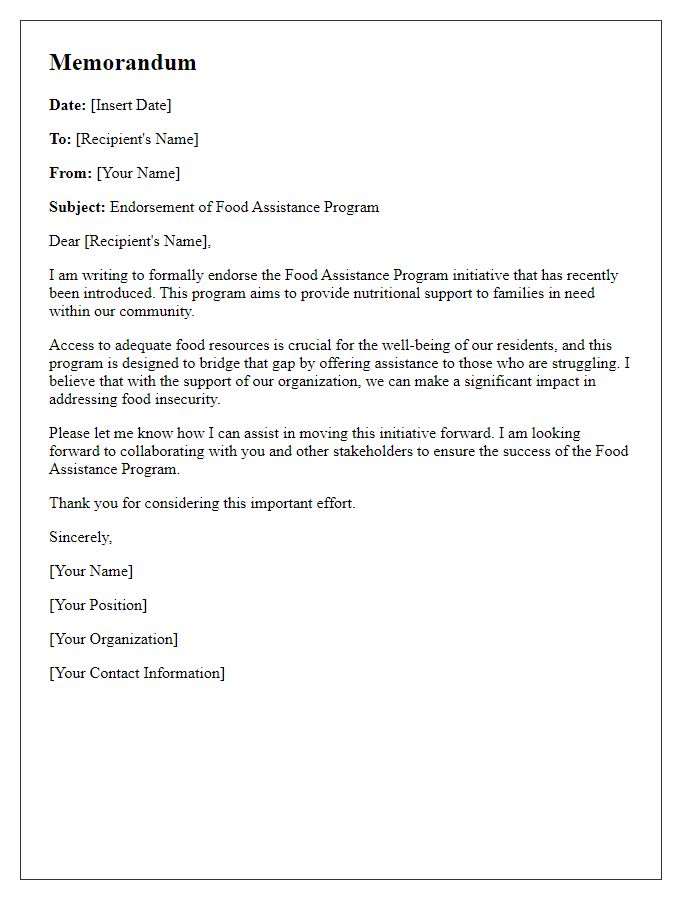
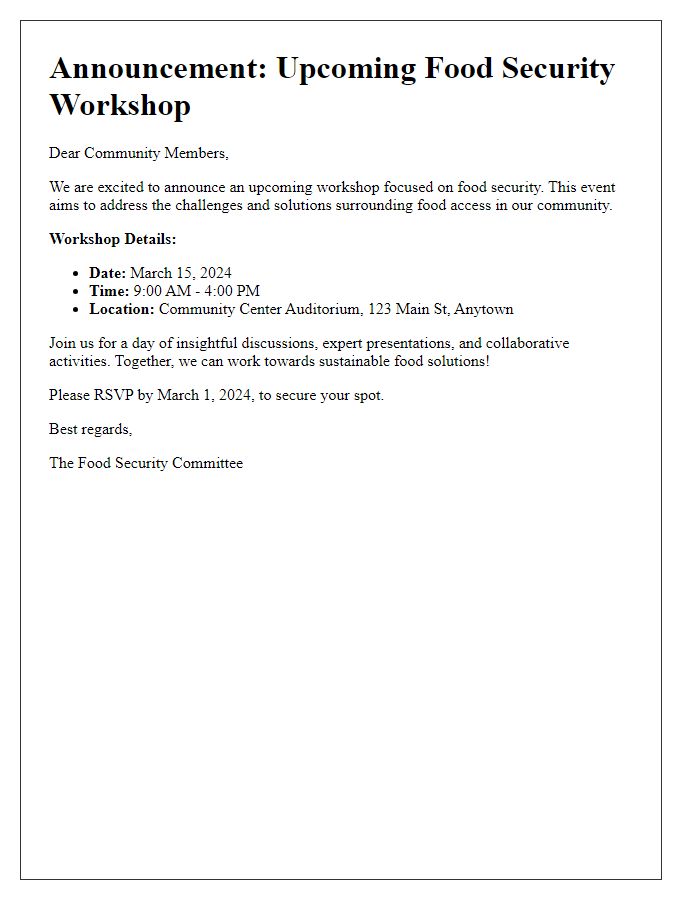
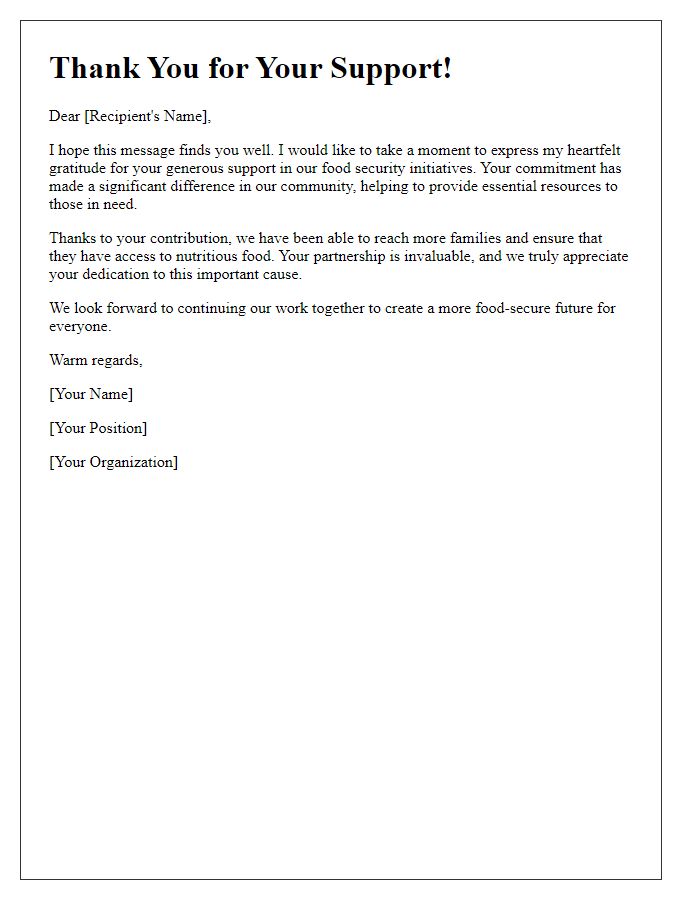

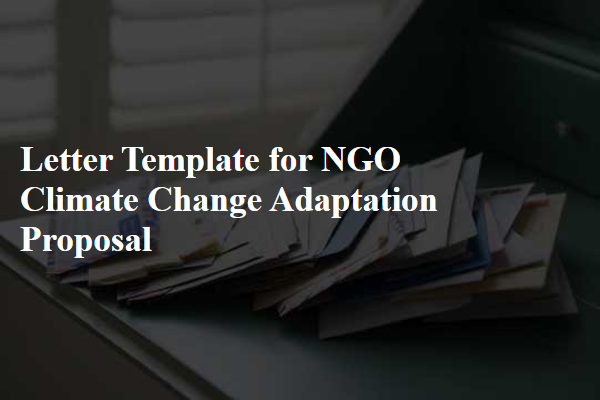
Comments